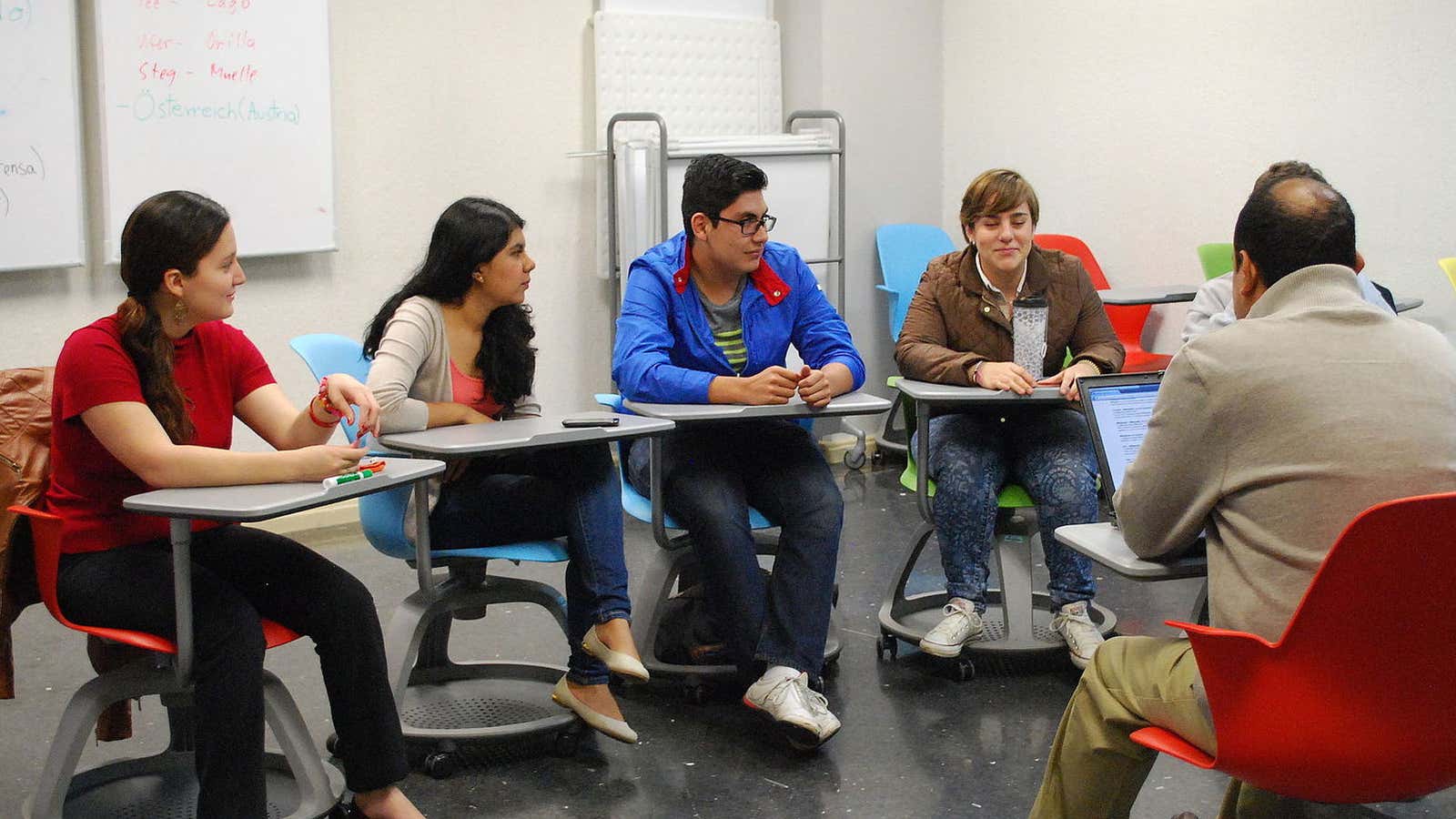When tuition-paying parents ask themselves what courses at the small liberal arts college where I teach will best prepare their child for the real world, they probably think about classes in math, chemistry, economics and computer science—majors that could land their children jobs at Google, a spot in medical school, or a seat at a venture-capital firm.
But I have a different answer: Fiction Workshop.
I don’t say this as a joke—and I’m not implying that a talent for literary fabrication in any way prepares students for a career in banking, law, or politics. Of course not.
In creative writing workshops, students write stories, share them with their peers and then meet to discuss how issues like point of view, narrative structure, characterization, tone, setting and voice contribute to the power—or lack of power—in their stories.
The aim is to generate feedback for the writer to sift through during the process of revision—to practice that necessary movement from flash of inspiration to finished product. In a workshop, students not only learn how to give criticism, they learn to take it. This means learning that the best feedback may come from an unlikely source, as well as learning how to recognize which comments will be most helpful even if they send you back to square one.
Before I began teaching, I worked in marketing, digital media and communications. I saw more than one dot-com boom go bust. And at every one of these jobs, I had to consider new ideas from my colleagues—business plans, market analyses, product prototypes, website redesigns—and provide cogent, meaningful feedback. Back then, I counted on a few simple rules that I learned in my own undergraduate creative writing workshops:
- “I like it” and “I don’t like it” are equally worthless. When someone asks you to read a story that they’ve poured their heart and soul into, saying you like it or don’t like it tells them nothing. They need specifics. Not as a way to pad or punish their ego, but in order to get a sense of what’s working and what’s not. They also need to understand your criteria for judgment: are you driven purely by taste? Whim? Or have you read this story with great care and attention to detail? Your opinion goes farther when it is backed up by evidence, and when you can eloquently articulate that evidence.
- No playing favorites. No story in a workshop gets a free pass simply because the writer is a senior and you a lowly sophomore. And no story gets shot down simply because the writer’s last story was a tragically ill-conceived mash-up of gothic horror and My Little Pony fan fiction. In the workshop, everyone evaluates the story on its own merits. The discussion should focus on a few simple questions: what is this story capable of being and how will my comments help the writer on the next draft?
- No meanies. Students do not eviscerate each other’s stories for sport, nor do they bestow baskets full of rainbows and sunshine on each other. A good workshop teaches you to put your own issues aside and deliver your opinion—especially your highly critical opinion—with some degree of diplomacy. If you truly hate someone’s story, you can say so: but you must help them to understand why their narrative produced such a bitter reaction in you, and you must do this without resorting to personal attacks.
- And no hard feelings. On the flip side, sometimes you’re the one whose story gets a rough reception in workshop. You expected tears of sympathy; instead you got peals of laughter, or even worse, a shrug. What do you do? You take pride in the fact that you put your work out there, you don’t take it personally, and you vow to do better next time. Because in both cases—whether you’re the writer or the critic—you’re still going to have to see each other in the dining hall or in the dorm.
The wacky draft of a story that your friend wrote is a work in progress. The crazy idea for an app that your co-worker just sprung on you is also a work in progress. A writing workshop, more than any other class, can prepare you for life in fast-moving startups where every employee is expected to think creatively, ask questions and sort out the truly useful feedback from the half-baked opinions.
That’s my story and I’m sticking to it.
We welcome your comments at ideas@qz.com.
Image by Thelmadatter on Wikimedia Commons, licensed under CC-BY-4.0.
